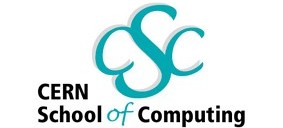|
Students at CSC2010
The following people have attended the 2010 CERN School of
Computing.
|
Daniele DE RUSCHI |
CERN, Geneva - Switzerland |
|
 |
I am working in the control section of the Electrical group. My first
project was inherent to data integration of remotely controlled electrical
data from different ACCESS databases on the field to GESMAR an application
developed at CERN based on ORACLE. I am focus on design and develop a web
application now; it could display historical and live power and energy
consumption allowing users to easily have an overview of the current status,
make data analysis and generate reports. Using the SSO infrastructure of
CERN it will manage different access roles and rules. Meanwhile I share my
knowledge helping the control group managing PCs for data acquisition, from
the security and post mortem analysis point of view. Since April I
contribute in the LCSP LHC Control Security Panel. I mainly use OS X,
Windows XP and Android but thanks to virtualization I tried different Linux
distributions and OpenSolaris. I usually program in Java but I have basic
knowledge of C/C++ Cyclone GO.For my Bachelor thesis i used G (LabVIEW)
while during a lifelong learning program in Norway I extensively used MATLAB
and Mathematica.
|
|
| |
|
Salvatore DI GUIDA |
CERN, Geneva - Switzerland |
|
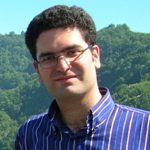 |
I am currently working on the development and the deployment of the core
software for the population of DB accounts in different RDBMS technologies
with condition data coming from the CMS detector, using Object Relational
Access. I am also developing tools, which, using the dropbox technology,
allow the automatic population of the Condition Database. All the logs of
the transactions are persistently stored, and monitored by applications that
have a web GUI, thus allowing for real time monitoring, and fast detection
of errors.
|
|
|
|
|
Rajeshkumar DUDHAT |
Sardar Vallabbhai National Institute of Technology, Surat - India |
|
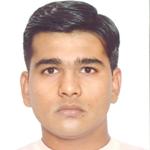 |
My work is related to Detector Simulation for the LUMINOSITY MONITOR for
future PANDA experiment at FAIR, GSI. Presently I am familiarizing myself
with PANDAROOT. I routinely use LINUX and Windows and I am very much
familiar with programming languages such as FORTRAN, C and C++ as well as
with MATHEMATICA and MATLAB and also ROOT and GEANT4. I completed my M.Sc.
with specialization in theoretical physics.
|
|
|
|
|
Johanna FLECKNER |
CERN, Geneva - Switzerland |
|
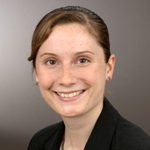 |
I am currently working on the commissioning of the ATLAS software for the
reconstruction of particle tracks and the identification of b-quarks in
particle jets (b-tagging). As part of this work I am studying the resolution
of the track impact parameter in transverse direction, which is one of the
most important inputs for b-tagging. I am developer of several C++
reconstruction algorithms and tools, and the main responsible for the
production of the b-tagging performance analysis data format (a ROOT ntuple).
I am familiar with Linux, Mac OS X and Windows operating systems. The
largest part of my work concerns programming in C++, but I also have good
knowledge of Python, Delphi, SQL and HTML.
|
|
|
|
|
Luigi GALLERANI |
CERN, Geneva - Switzerland |
|
 |
My current work is in virtualization using the OracleVM technology, and
adapting it to the CERN cluster infrastructure management system. This
provides a transparent and Quattorised integrated layer of virtual Red Hat
Enterprise and Scientific Linux machines for virtual IT-DB services hosting.
I have an indepth knowledge in Networking and in GNU/Linux Operating
Systems, which I use in the development of these virtualization solutions.
Collaborating with the CERN openlab and using a multiprocessor computer, I
am also studying the OracleVM performances. The aim of this task is to find
the best load balancing configuration for the services that will run on the
new cluster machines. I have good experience in OS scripting languages,
imperative and OO-programming, in particular the C family. My MSc Thesis and
previous work at the LHCb, gave me also skills in real time SCADA system
programming. I have also become a CERN guide, and in learning more about the
Particle Physics Experiments, have been able to help educate visitors.
|
|
|
|
|
Carlos GARCIA FERNANDEZ |
CERN, Geneva - Switzerland |
|
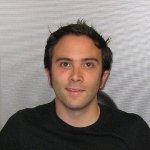 |
Coming from Spain, I studied at the University of Oviedo. Thanks to them I
got the opportunity to come to CERN as a Project Associate.
During this first period at CERN, I
was developing and maintaining the configurations in the infrastructure of
CERN network, migrating from CISCO Firewall to IPTables Firewall. As well I
was giving support to FlexLM License Management system, and using CERN
Fabric Management Infrastructure (http://cern.ch/quattor)
to fully automate installation and maintenance of some servers, managing
Linux RPM’s software distribution and installation systems.
One year later I got an openlab Fellowship in which I am currently
working and my tasks consists in the integration of Oracle VM server within
CERN infrastructure. I have been working in the integration at the host
level in CERN ELFms (the large scale management system) and currently I am
working in the integration at the guest level, as well as the migration of
application and database servers to these virtual machines. I am familiar
with Unix/Linux environments, as well as Windows. I have been working with
shell, perl, scripting programming, and I like to program as well in Java
and Web technologies.
|
|
|
|
|
Mikhail GAVRILENKO |
JINR, Dubna - Russia |
|
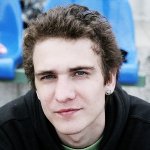 |
I am graduated from Moscow State University the faculty of Physic. Now I am
currently doing my PhD in the University of Dubna and I am working in JINR
on monitoring system for CMS. Currently I am involved in developing and
maintaining the DDM (DM) system for the dCaceh SE. I am familiar with Linux
(SLC, Debian), Windows, with C++, Perl, SQL, PHP languages. As hobby I am
playing Ultimate frisbee.
|
|
|
|
|
David GONCALVES PACHECO |
CERN, Geneva - Switzerland |
|
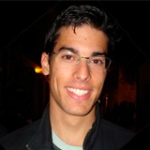 |
I have obtained an MSc in Computer in Telematics Engineering at the
University of Aveiro (Portugal). After that I started working at CERN as a
trainee in the IT Department in the Physics Databases Section (DB Group). My
work has consisted in developing a J2EE application to monitor the auditing
information extracted from the production and development databases (Oracle)
supporting the main LHC experiments (ALICE, ATLAS, CMS and LHCb). In
parallel I also started to do some Oracle DBA administration work.
|
|
|
|
|
Alvaro GONZALEZ ALVAREZ |
CERN, Geneva - Switzerland |
|
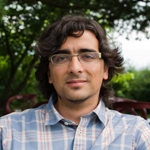 |
My area of work is Linux servers. Specifically, the CERN central Version
control systems, including the CVS service, LCGCVs service and SVN service,
and the Linux license servers. My job is to keep the 4 services available,
fixing the problems, improving the performance, upgrading the programs,
improving the infrastructure to manage the services, ... As most of our
infrastructure is done in PERL and BASH, these two languages are the ones I
have more expertise on. In the same way, we use other languages as: the PAN
language for the QUATTOR templates and PHP for the web interfaces. Besides I
have a fair knowledge of PYTHON, JAVA and C. As they are also part of our
infrastructure.
|
|
|
|
|
Pablo GUERRERO |
CERN, Geneva - Switzerland |
|
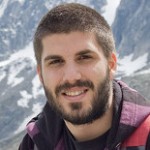 |
Last year I finished my Master's Thesis on Computer Science at the Zaragoza
University (Spain) doing an internship as Technical Student at CERN. I
worked developing an automatic solution for the RPM generation process for
different Oracle products, written in object oriented Perl.
After that, I worked for 3 months for Warp, a consulting company
working with Open Source platforms, implementing new features for web
applications written in Python and Ruby. In August 2009, I came back to work
at CERN as Fellow in IT-GT, working for gLite, a Grid middleware used for
the LHC Computing Grid. I am a
member of the gLite integration team, performing the tasks needed to release
new versions of the middleware. I also have to participate in the
modification of the integration process and implement the changes in the
software used in the process.
|
|
|
|
|
Line GUNTHER |
CERN, Geneva - Switzerland |
|
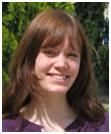
|
I work in the IT Department at CERN. My group is Platform and Engineering
Services (PES) and my section is Engineering Services (ES). I am working as
system administrator for CAD/CAE (Computer Aided Design/Computer Aided
Engineering) tools at CERN. Tools like CATIA, SmarTeam, AutoCad and
Inventor. This includes: Administration of the computer infrastructure on
witch these tools are running. Manage user data backup and archiving. Create
system and CERN specific documentation for the installation procedures, the
system monitoring and the operation maintenance. I am working mostly on
Windows and I am familiar with Visual Basic, HTML and SQL
|
|
|
|
|
John HEFFERMAN |
CERN, Geneva - Switzerland |
|
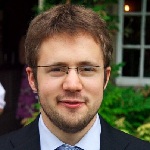 |
Kerberos Realm Consolidation: Carried out an investigation to determine how
CERN¿s two Kerberos realms could be unified, and am working with the staff
concerned to develop the plan and software necessary to bring about a single
Kerberos Realm at CERN. The investigation began with a feasibility study
covering the various solutions, involving tests to determine which options
were viable and how they might provide an authentication service to AFS and
LSF Batch, in the event that the realms were consolidated. Currently in the
process of implementing the proposed consolidation plan, which is scheduled
to be completed later this year, or early next year. I am also doing some
studies related to the AFS file system, which I will be helping to
administer in the future.
|
|
|
|
|
John KELLY |
SFTC, Didcot – U.K. |
|
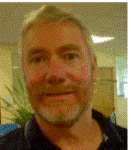 |
I currently work for the tier1 at Rutherford Appleton Laboratory helping to
run the tier1 infrastructure and supporting the LHC experiments. My
background is a systems administrator in an ISP environment. I find the
tier1 to be a very different and challenging environment. An ISP environment
generally uses standard software eg apache, exim, mysql and bind. Most
software is written in C and administration scripts are often written in
Perl. Practically all production systems were Linux and Solaris. I find the
tier1 to be very different and I feel that the CSC would give me a greater
insight into how the WLCG works.
|
|
|
|
|
Kim Siang KHAW |
University of Tokyo - Japan |
|
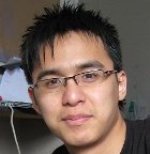 |
I am now working for the LHC-ATLAS experiment, especially on the
reconstruction and identification of hadronic taujet. At the same time, I am
also studying the discovery potential of SM, MSSM and NMSSM Higgs with
taujet final states. I have been using Windows (XP, Vista) and Linux(SLC4,
SLC5, Ubuntu) for operating systems, mostly C, C++ and python for
programming languages.
|
|
|
|
|
|
|
